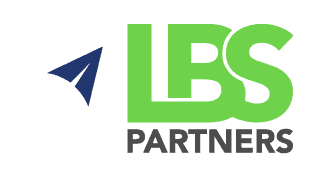Enhancing value for the customer is the essence of “Lean”. This means delivering what the customer needs, when it is required and at the best possible price. Lean offers a structured methodology that maximises value for the customer through the elimination of waste from an organisation’s activities. Lean examines the entire value stream. The value stream is described as the sum of all activities completed by an organisation to produce a product or to deliver a service.
The elimination of waste is a key underlying principle of Lean. It requires moving away from the traditional approaches to process improvement and instead focusing on the product or service provided to the end-customer. A culture of continuous improvement is key to any organisation’s sustained success in the elimination of waste. Instilling this culture is done by considering three aspects of the business:
PURPOSE PROCESS AND PEOPLE.
An organisation’s Purpose will be to thrive and grow. This will only be achieved by continuously providing value to its customers. Reviewing where the business is now versus where it needs to be is necessary; a gap analysis.
Having defined the organisations purpose, the next step is to define the Processes which will enable it to achieve its purpose, i.e. the steps which will maximise customer value most efficiently. Looking across the value stream; examine all process steps, see which add value and which do not. Eliminate all unnecessary steps if possible and if not look at how they can be streamlined.
People will be required to drive these processes. Consider what skills and training is required to enable them to perform the processes at the required level to enable customer satisfaction. Involve them in the improvement process; use their experience to drive day-to-day problem solving thus resulting in continuous improvement.
The implementation of Lean in an organisation typically leads to a number of benefits including an increased rate in:
- Effectiveness
- Competitiveness
- Productivity
- Customer satisfaction
- Return Business
- Job satisfaction
- Response to customer demands
Similarly, with the introduction of Lean, there is a reduction in:
- Cost to provide a product/service
- Time to market
- Cycles times
- Customer complaints
- Stress for stakeholders
Lean is the perfect business model for a company who is goal driven and seeks to eliminate waste from their workplace. Emphasis is put on the experience of the customer which ensures satisfaction. Identification of value versus waste from the customer’s perspective is a key principle in Lean. Waste is defined as “any activity which does not add value to the product or service provided for the customer”. The customer is the person who pays for the product or service. In relation to providing value to customers
Lean considers the following:
- Would the customer pay for the activity?
- Was the product or service transformed or improved by the activity?
- Was it done “Right-First-Time”?
If the answer is no, then value is not being added. This questioning must be continuously applied to ensure that all waste is made visible and the improvement opportunity is maximised. By interrogating processes within your organisation, you can reach the full potential of your organisation.
Lean provides a structure to companies that want to make it to the next level in business. It is an effective system that ensures the best result out of your resources. By implementing Lean, you can be certain that nothing is holding you back, allowing your company to thrive and grow at the pace it deserves. By maximising the value of your business, it proves itself invaluable to your customers who rely on excellent service. This increases customer satisfaction, which in turn increases revenue, which leads to a successful organisation. Implement Lean to ensure your company blossoms into a string, rewarding, and prosperous organisation.
